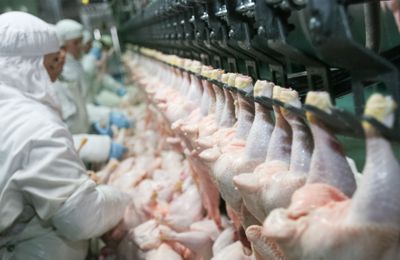By clicking a retailer link you consent to third-party cookies that track your onward journey. This enables W? to receive an affiliate commission if you make a purchase, which supports our mission to be the UK's consumer champion.
Gene-edited crops: what are they and should you be concerned?

Gene-edited crops may soon be a reality in the UK as the government looks to make changes to regulations post-Brexit.
The Environment Secretary, George Eustice, has announced a plan to separate the regulations that cover gene-edited and GM crops, following a public consultation earlier this year.
Under current EU regulations, gene-edited and genetically modified (GM) crops are treated as the same and have to undergo field trials that span several years, as well as extensive food safety tests.
Once these have been passed, member states then have to vote to approve a new variety.
However, now that the UK has left the EU, the government is looking to relax regulations around the use of gene-editing in farming, with Eustice saying it will help to 'enable more sustainable and efficient farming'.
This will be the first big move away from existing EU food laws since the UK left the EU (although the EU is also looking into updating its regulations).
Supporters say that it will allow farmers to grow crops that are more resistant, produce higher yields and are more nutritious.
But opponents argue that it's a weakening of standards that could lead to unforeseen consequences, such as, in the case of animals, poorer welfare standards (for example, making animals disease resistant could potentially be used as justification for poorer living conditions).
Tips for living well -get our free Food & Health newsletter: shop savvy, eat well, stay healthy
Gene-edited vs genetically modified: what's the difference?

Enzymes are used to cut the DNA sequence at specific points, and sections of DNA are added, deleted or replaced to enhance or add desirable traits, such as improving the nutritional content of a crop or making it more resistant to climate change and disease.
These changes can be the same as those that would occur naturally or through traditional selective cross-breeding, but gene editing allows them to be achieved more quickly and with greater precision.
This is different to genetic modification, where new DNA (from another plant or animal) is introduced into the genes of a plant or animal in a non-targeted way.
This process enables desirable traits to be inserted to create plants, animals and other micro-organisms with specific qualities and is not something that would occur naturally.
What's changing in the UK and how?

Initially, legislation will be passed to remove the need for scientists to apply for a licence to carry out field trials of a gene-edited crop that could have been produced by traditional cross-breeding.
This will be followed by legislation allowing simple gene-edited crops to be regulated in the same way as new varieties for commercial development.
The Scottish, Welsh and Northern Irish governments will be able to decide if they wish to opt in or out of the changes.
UK vs world food standards - see how our current standards compare to non-EU countries
Should consumers be worried?

The Food Standards Agency says: 'We're committed to the highest food safety standards and we always put the consumer first.
'Gene-edited foods will only be allowed if they don't present a risk to health, don't mislead consumers and don't have less nutritional value.'
It also points out that there are no gene-edited crops for sale in the UK at the moment.
However, the Welsh government has said it has no plans to revise the regulations in Wales and will continue to use the EU regulations that treat gene-edited and GM crops under the same legislation.
Sue Davies, Which? head of consumer rights and food policy, says: 'Which? research shows consumers expect independent scientific oversight for new technologies.
'While gene editing and other technologies may have a role to play in tackling environmental impact of the current food system, it's important consumers have confidence in a regulatory regime that underpins their release and that a precautionary approach is followed.'
How trade deals affect you - our policy experts dig into what the latest post-Brexit trade deals mean for consumers



